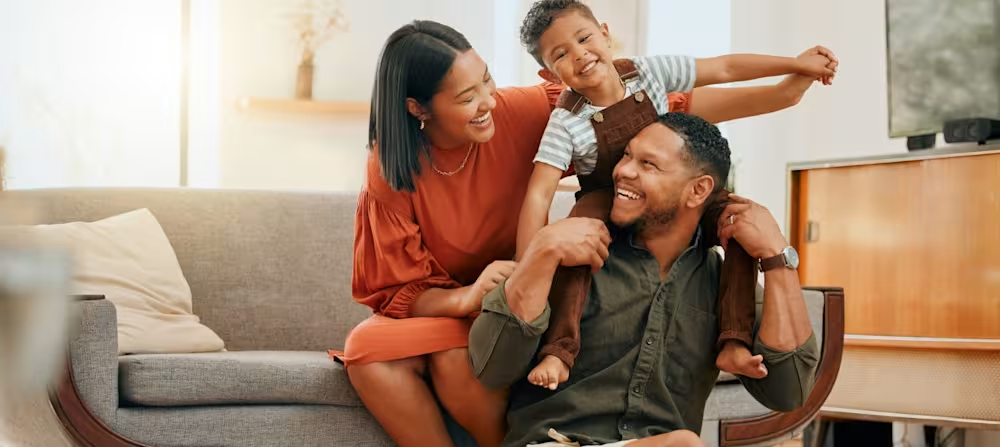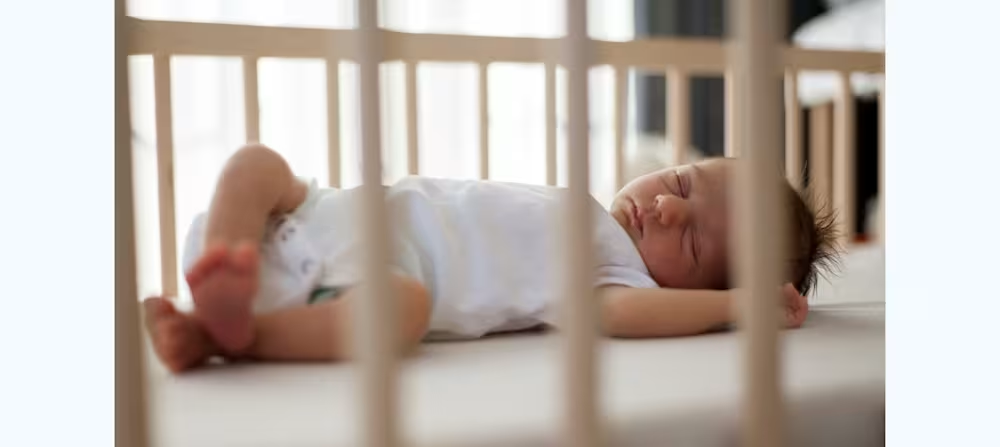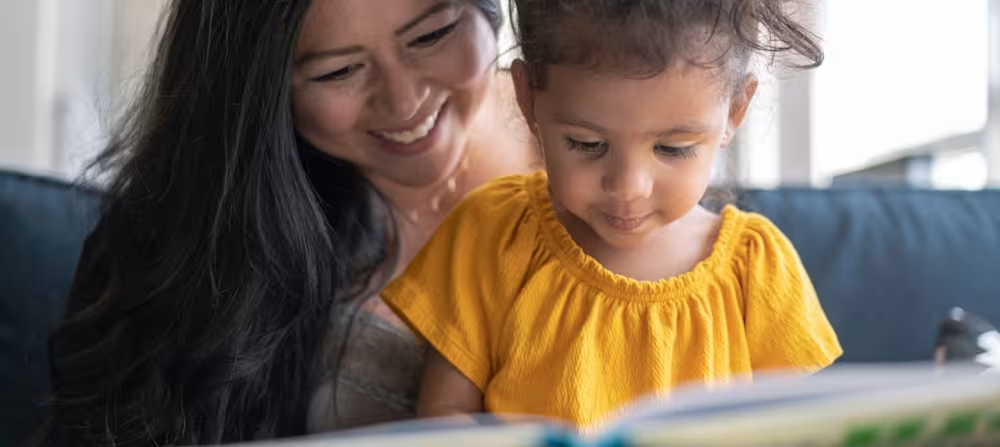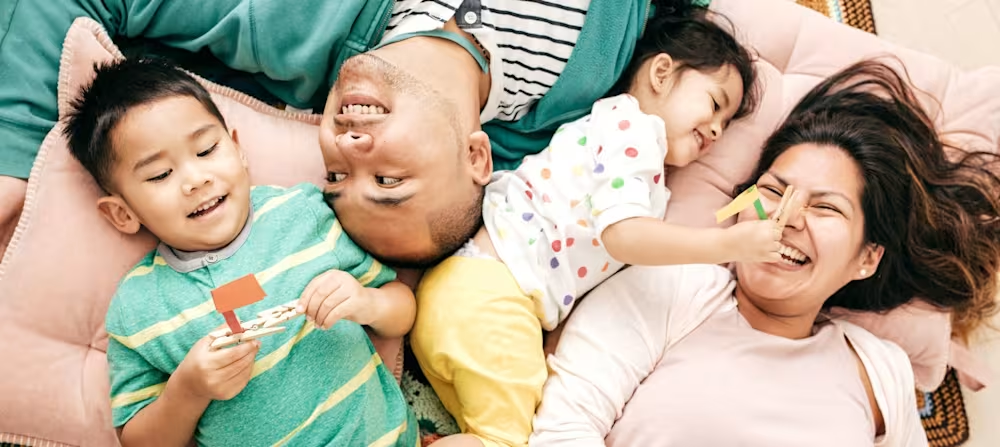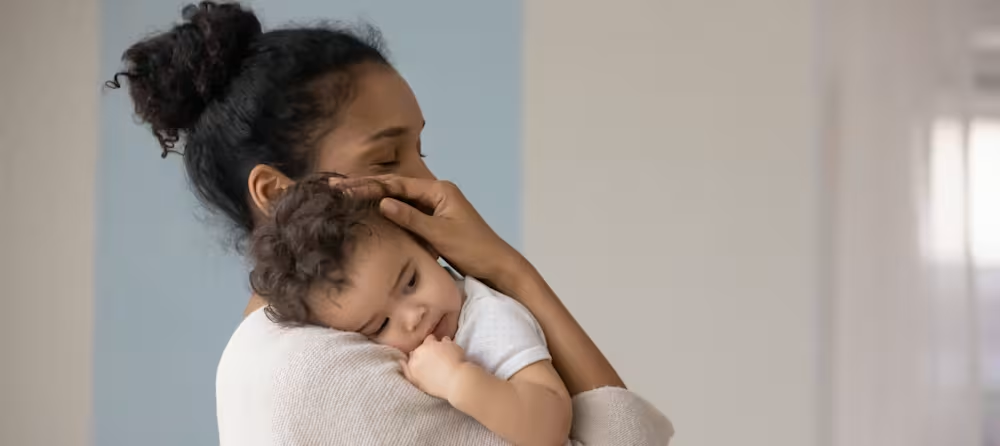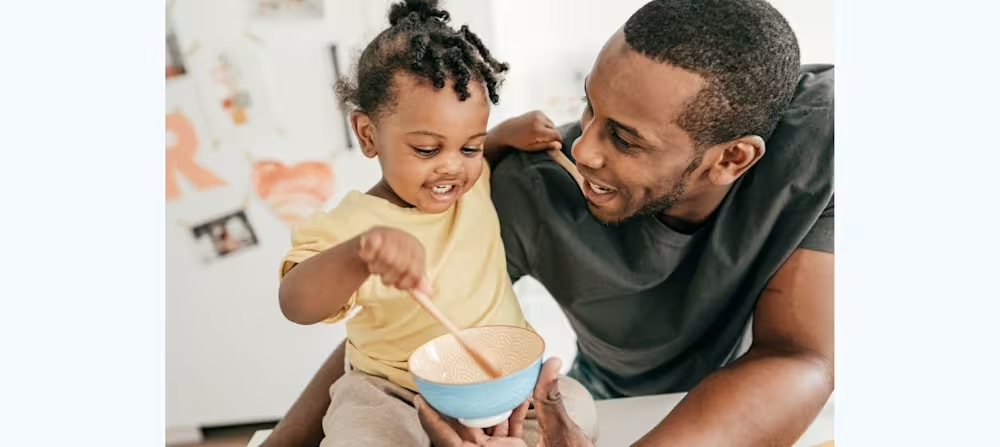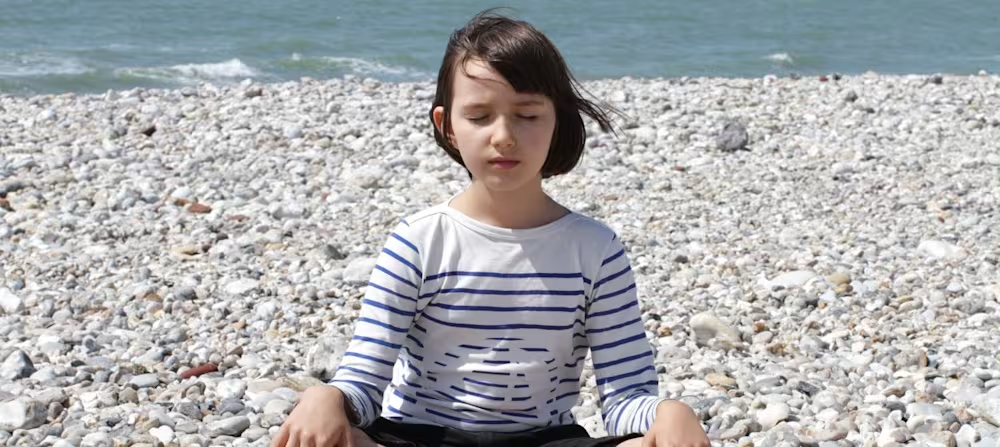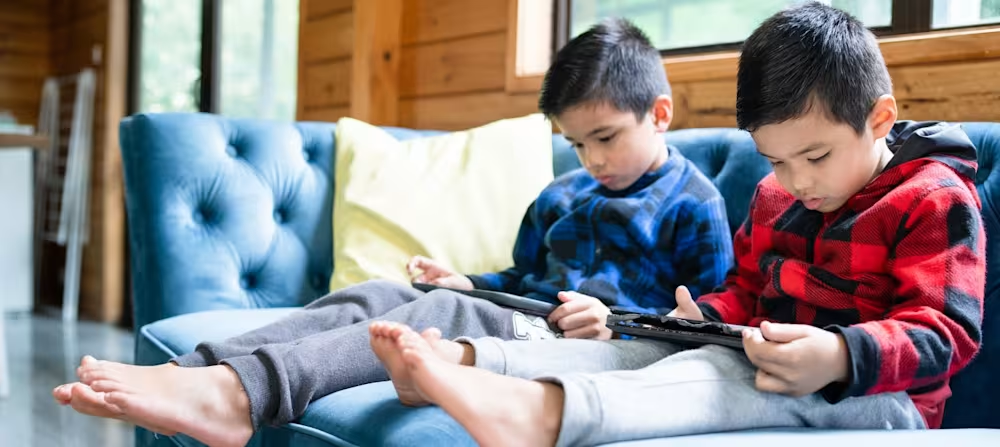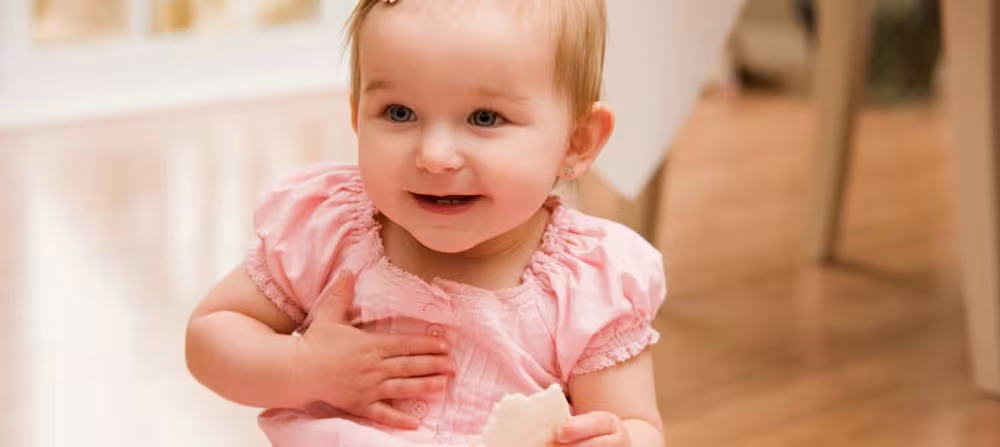The benefits and importance of music education for children
Updated Jan 02, 2026

Have you ever experienced this miracle yourself, or noticed your child’s face light up when they hear a song they love? Music evokes feelings in all of us, and it's a universal language that we all understand. Music can also be a game changer, turning frowns upside down and fostering a connection between those who enjoy it together.
Listening to and creating music isn't just for fun! It nurtures your child’s cognitive and social-emotional development and even supports the formation of important brain connections that are made in the first few years of life []. When shared with a parent or adult who cares about them, music experiences promote bonding and feelings of love and connection.
Participation in music education or activities also facilitates listening and communication skills, language and literacy development, and it can foster self-regulation when used during transitions and for calming dysregulated feelings.
In this article, we’ll explore the importance of music education for children, explore the myriad ways music promotes developmental growth, and provide suggestions on incorporating music into your family life.
Cognitive development benefits of music education for kids
Music provides opportunities for counting, exploring patterns, and helps children remain focused and engaged - so it’s the perfect learning tool. Research shows that children exposed to music may experience improvement in language development, literacy, math and science competency, verbal memory skills, and even better attention spans [,,,,]!
Emotional well-being benefits of music education for children
Ever noticed how music can just make you feel good? Belting out a little ditty can shift your mood big time, and there is research to support this notion. A study from the Bernard van Leer Foundation found that singing interventions in early infancy [] may reduce parental anxiety, improve mood, encourage emotional development, and improve bonding and attachment between parent and child.
Music classes and activities also provide a secure place for children to express their emotions. Listening to music, and playing it, is one of the simple pleasures in life that helps calm the mind. Children often don’t have the words or cognitive ability to express their feelings verbally, so music offers a safe and positive way to release their emotions.
Social skill benefits of music education for kids
Singing to your child just a few times per week may benefit their social development – it’s such a simple way to connect with your child as well (and I promise, they couldn’t care in the least if you can carry a tune).
Music classes and group activities allow babies and children to experience the sounds, interactions, and experiences that come with socializing in a very safe and secure way. A study found [] that toddlers who participated in 4-to-8-month music education classes designed to improve kindergarten socioemotional readiness demonstrated improved social cooperation, interaction, and independence.
When children participate in group music activities, this fosters communication, teamwork, and cooperation.
Cognitive and physical benefits of music education for children
Enhanced creativity
Participating in music activities fosters creative expression and exploration, and helps to develop a child’s imagination. Whether it's through listening to a variety of genres, exploring an instrument or percussion, engaging in storytelling through song, or using their imagination to add meaning to the music they are creating or enjoying, music inspires creativity. A study [] found that participants who listened to “happy music” displayed greater creativity!
Cultivating creativity through music is fun and beneficial to their developing brains.
Discipline and time management
Learning to play an instrument requires commitment. Young musicians must be disciplined if they want to improve their skills. Setting a time each day to practice, and then following through, develops discipline and inspires feelings of resilience and mastery as well.
Cultural appreciation
Anyone, anywhere around the world, regardless of race, ethnicity, gender, age, or socioeconomic status, could enjoy the same piece of music. In this way, music is universal, with the possibility to transcend differences in culture and identity. Music education that includes genres and musicians from around the world provides the opportunity to learn about and appreciate other cultures, which can develop empathy and perspective.
Motor skills and coordination
Anyone who’s learned to play guitar, piano, the drums, or any other instrument, can tell you that doing so requires coordination! The opportunity to practice rhythms, sequences, and patterns, and to count along with the music, facilitate these skills of timing and coordination. Playing music improves muscular coordination in children in a very safe and engaging way.
Activities to help introduce music to your kids
Introducing music to your child should be relaxed and fun, and there are countless ways to do it! You don’t need to pay for expensive classes or instruments either. The most important thing when sharing music with your child is to be patient, and just let them explore. They may not have the same preferences as you and they may get frustrated or bored sometimes. All of this is normal and part of learning.
Here are some parenting tips for introducing music to your child.
Sing-along sessions
All you need for this is a willingness to sing. Family karaoke is a blast, or you can sing in the car, during bathtime, or even while cleaning up toys (e.g. the ubiquitous “Clean up, clean up, everybody, everywhere” song is a good option!).
Linking the song to movement can be especially engaging for babies and toddlers. Songs like “Heads, Shoulders, Knees and Toes” are always a big hit. You can urge your child to mimic your movements or if you have a baby, you can place your hands on each body part as you sing along.
Musical storytime
Musical storytime uses both narration and song to keep little listeners entertained. Check your local library, community center, or music school to see if they offer musical storytime, or you can create your own at home!
DIY instruments
Do-it-yourself instruments are excellent for both skill-building and entertainment. Your child can feel a sense of accomplishment when they’ve made their instrument, even if it’s just gathering a compilation of wooden spoons and pots and pans!
The tissue box guitar:
You could make a guitar with an empty tissue box with rubber bands stretched across the opening. Decorating the guitar will make it look spiffy and extend creative thinking even more. You can also fill Easter eggs, empty water bottles, or plastic containers with dried beans or rice to make maracas or shakers. Disclaimer: Be cautious with small objects that could pose a choking hazard, and supervise children to prevent any potential accidents. If your child is under 3 years old, avoid small objects like dried beans or rice.
The water and mason jars instrument:
Fill mason jars with various volumes of water, add a few drops of food coloring to each (perhaps a different color for each jar), and close the lid tightly. Then use a rubber mallet to tap each jar, noticing the distinct sound each jar makes.
Dance parties
Dance parties are my personal favorite and near and dear to my heart. Both of my kids are high-energy and love listening to music and moving their bodies. Be sure to expose your child to different genres, so they can experience dancing to various rhythms and sounds.
With babies, you can hold them close and sway or bounce to the beat. Or lay them down on a mat and gently move their limbs to the music, so they can experience the dance.
Instrument exploration
The first step is exposure to music because when music is already a part of their lives, they’ll have more interest in learning to play! Check your local music schools to see if they have a variety of class that exposes young musicians to various instruments. That way they can try out several age-appropriate instruments before committing to lessons or buying an instrument. Some music programs also have rental instruments, so you can try them before you buy.
Keep in mind that just because you play piano or violin doesn’t mean that your child will gravitate to that particular sound. If you let them explore and find what they enjoy themselves, they will be more likely to commit to it.
Music and movement games
Music and movement go hand-in-hand, as is the case when you turn it on and start tapping your foot! You can build on this by choosing songs that help grow your child’s body awareness. “Hokey Pokey” and “Heads, Shoulders, Knees and Toes” are two classics that encourage coordination and balance, and also teach about body parts.
Freeze dance is another great one because it teaches self-regulation and kids have to really stay focused to play along. Fast & Slow is similar, and loads of fun because you get to be DJ! With this, you can encourage your child to move to the beat, moving back and forth between songs and genres with different tempos. They have to do real-time problem-solving to figure out how to coordinate their body movements with the music.
Attend kid-friendly concerts
Going to a show can be both fun and a fantastic opportunity to create meaningful memories together. Check your local events calendars like the local library or community center for kid-friendly musical performances.
Music classes for kids
You most certainly do not need to pay for music classes to introduce your child to music. There are so many free and low-cost options available to help foster a love of music, but if you want something more organized, classes can be beneficial for both musical enrichment and parent-child bonding.
Group classes also foster community and connection and give you both a chance to socialize. Individual lessons are appropriate if your child is motivated to learn a particular instrument.
Takeaway
Music is a universal language that has the power to impact us in the most wonderful ways. The joy of sharing music between parent and child builds a connection. Sharing music amongst friends and classmates enhances social skills and prosocial behavior. Music also nurtures a child’s imagination and cognitive development and provides a healthy outlet for exploring and regulating emotions.
With so much to gain in so many facets of child development, music education is a valuable component of any curriculum, and an important activity to bring into any home.
Share article:
Note: The content on this site is for informational purposes only and should not replace medical advice from your doctor, pediatrician, or medical professional. If you have questions or concerns, you should contact a medical professional.
10 Sources
Share article:
